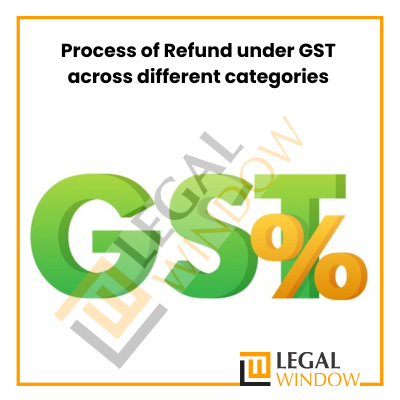
The residence status of a taxpayer is significant because the income tax department treats its taxpayers differently. As a result, it is critical for every taxpayer to verify their residence status prior to tax planning, computing tax payable, and filing. The Income Tax Department must determine a taxpaying individual’s or company’s residence status. It becomes more important during tax season. In reality, this is one of the elements used to determine a person’s taxability. In this article we will talk about Residential Status of Individuals.
| Table of Content |
The Definition and Importance of Residential Status of an Individual
An individual’s taxability in India is determined by his residency status in India for any given fiscal year. The phrase “residential status” was coined by India’s income tax regulations and should not be confused with an individual’s citizenship in India. An individual may be an Indian citizen but become a non-resident for a certain year. Similarly, a foreign citizen may become a resident of India for income tax purposes in a given year. It is also worth noting that the residence status of different categories of people, such as individuals, firms, and companies, is established differently.
Residential Status Determination
For the purposes of income tax in India, taxable people are classified as follows:
- A resident
- A resident who is not normally a resident (RNOR)
- A non-resident (NR)
Each of the following taxpayer types has a different taxability. Before we go into taxability, let’s look at how a taxpayer becomes a resident, RNOR, or NR.
Who is Resident?
A taxpayer qualifies as an Indian resident if he meets one of the two qualifications listed below:
- A stay in India for a year is 182 days or more.
- Stay in India for 365 days or more in the four preceding years, and 60 days or more in the relevant fiscal year
If a citizen of India or a person of Indian ancestry leaves India for employment during an FY, he will only qualify as a resident of India if he remains in India for 182 days or longer. Such persons are permitted to stay in India for a period of more than 60 days but less than 182 days. However, beginning with the fiscal year 2020-21, the time is decreased to 120 days or more for such a person whose total income (excluding foreign sources) exceeds Rs 15 lakh.
Another noteworthy change that will take effect in FY 2020-21 is that an individual who is a citizen of India and is not subject to taxation in any other nation would be considered to be a resident of India. The considered residential status criterion applies only if his total income (other than from overseas sources) exceeds Rs 15 lakh and he has no tax responsibility in other countries or territories due to his domicile or residency or any other comparable criteria.
Resident Not Ordinarily Resident
If a person meets the residency requirements, the next stage is to decide whether he or she is a Resident ordinarily resident (ROR) or an RNOR. He is a ROR if he fits both of the following criteria:
- Has resided in India for at least two of the ten years before this one, and
- Has spent at least 730 days in India in the last seven years.
As a result, if any individual fails to meet even one of the foregoing standards, he is an RNOR.
From FY 2020-21, a citizen of India or a person of Indian origin who leaves India during the year for employment outside India will be considered a resident and ordinarily resident if he stays in India for an aggregate period of 182 days or more. This condition, however, will only apply if his total income (excluding foreign sources) exceeds Rs 15 lakh. A citizen of India who is deemed to be a resident in India (beginning with fiscal year 2020-21) will also be a resident and ordinarily resident in India.
Ordinary Resident
In any fiscal year, a person is considered to be “not normally resident” in India if the individual is-
- An individual who has been a non-resident in India in nine of the 10 prior fiscal years preceding a given fiscal year, or who has been in India for a period or periods totalling seven hundred and twenty-nine days or fewer during the seven fiscal years preceding that year; or
- Hindu Undivided Family (HUF) whose manager has been a non-resident in India in nine of the 10 fiscal years before the relevant fiscal year or has spent at least seven hundred and twenty-nine days in India during the seven fiscal years preceding that year. As a result, a “ordinary resident” is a resident who falls outside of the scope of the preceding definition.
Non-Resident
In any fiscal year, an individual is a non-resident in India if the taxpayer does not meet any of the above-mentioned qualifications for a resident but not normally resident or an ordinary resident.
Endnote
Taking cognizance of all the above mentioned information can have understanding of the residential status of the individual. Further, it is advisable for the individual to make clarifications regarding its residential status to the Income Tax Department so that the department could levy tax on the Individual as per the Income Tax Act, 1961.
Do you want to file your Income Tax Return? Connect to the Legal Window and get your Returns filed before it gets late.
LegalWindow.in is a professional technology driven platform of multidisciplined experts like CA/CS/Lawyers spanning with an aim to provide concrete solution to individuals, start-ups and other business organisation by maximising their growth at an affordable cost. Our team offers expertise solutions in various fields that include Corporate Laws, Direct Taxations, GST Matters, IP Registrations and other Legal Affairs.
Categories
- Agreement Drafting (23)
- Annual Compliance (11)
- Change in Business (36)
- Company Law (147)
- Compliance (88)
- Digital Banking (3)
- Drug License (3)
- FEMA (17)
- Finance Company (42)
- Foreign Taxation (6)
- FSSAI License/Registration (14)
- GST (116)
- Hallmark Registration (1)
- Income Tax (199)
- Latest News (34)
- Miscellaneous (164)
- NBFC Registration (8)
- NGO (14)
- SEBI Registration (6)
- Section 8 Company (7)
- Start and manage a business (20)
- Startup/ Registration (126)
- Trademark Registration/IPR (40)
Recent Posts
About us
LegalWindow.in is a professional technology driven platform of multidisciplined experts like CA/CS/Lawyers spanning with an aim to provide concrete solution to individuals, start-ups and other business organisation by maximising their growth at an affordable cost.








